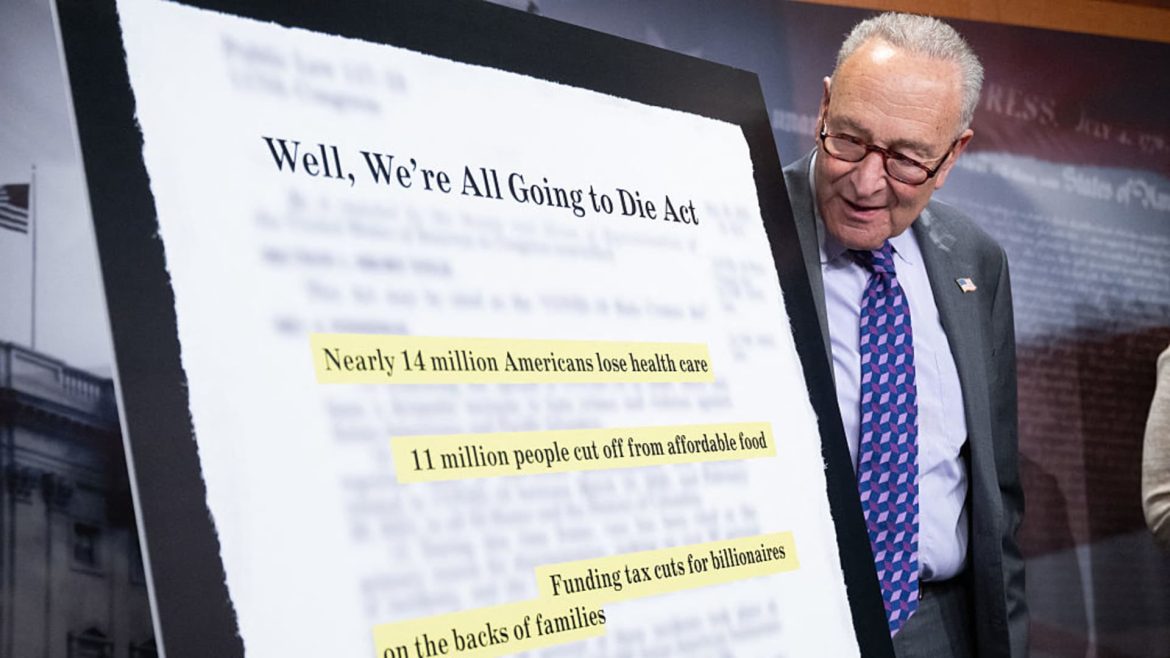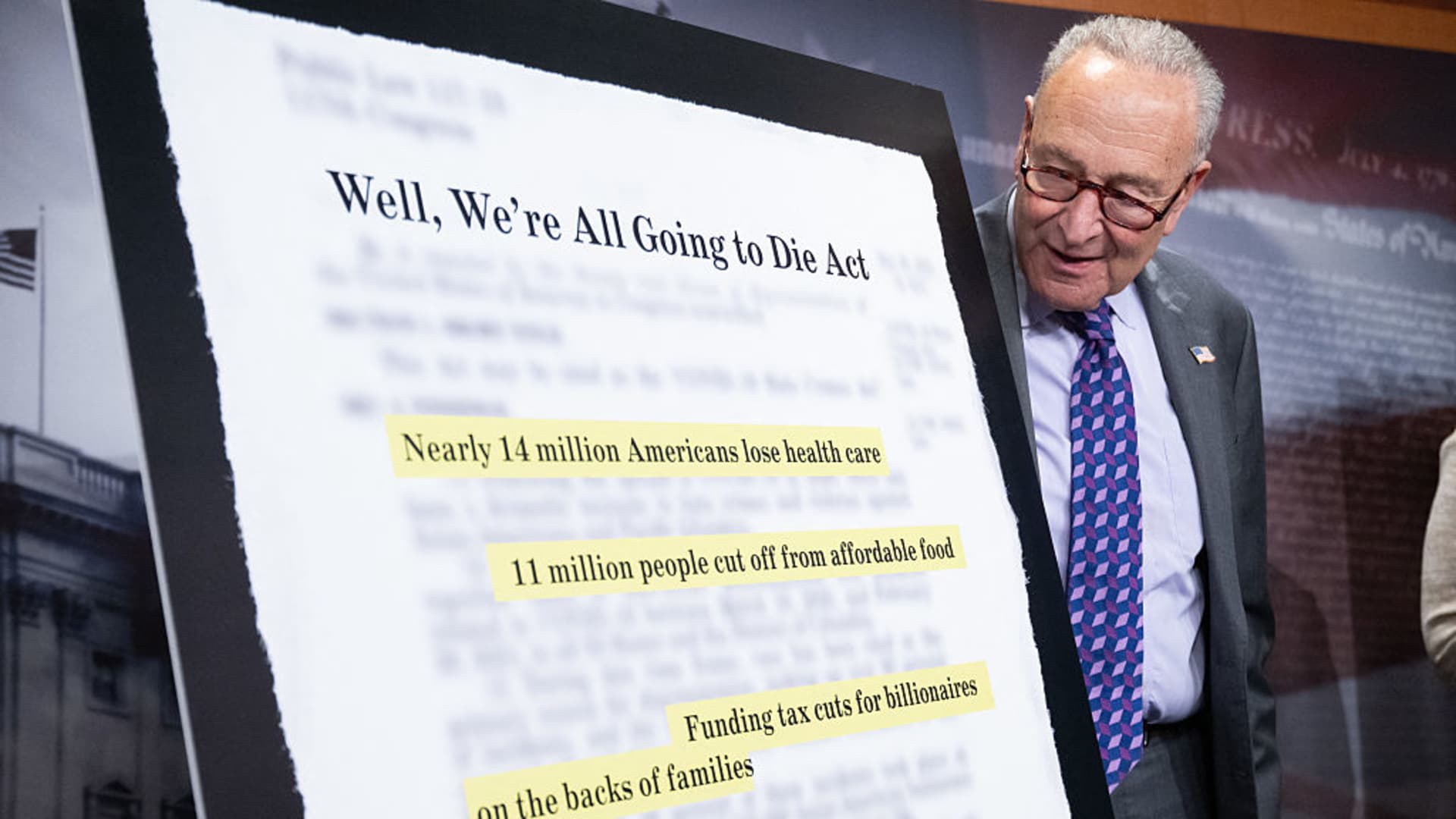Overview of the GOP Megabill’s Impact on Health Insurance Coverage
Recent analyses from multiple news outlets and the nonpartisan Congressional Budget Office (CBO) have shed light on the significant consequences the House Republican tax and spending legislation—often referred to as the “megabill”—would have on health insurance coverage in the United States. The central finding echoed widely is that nearly 11 million Americans could lose health insurance if this legislation becomes law. This broad insurance loss primarily stems from steep cuts to Medicaid and the rollback of provisions under the Affordable Care Act (ACA).
—
Key Drivers Behind the Loss of Coverage
Medicaid Cuts
Medicaid is identified as the major casualty in the GOP’s fiscal recalibration. This program, which serves low-income individuals and families, would face unprecedented cuts projected to reduce enrollment sharply. Estimates suggest more than 7 to 8 million people may be disenrolled due to tightened eligibility requirements, stricter enrollment and verification rules, and capped state funding. The bill controversially freezes growth in funding mechanisms, such as taxes on medical providers that states use to finance Medicaid, further straining the program.
This is considered the largest Medicaid reduction in U.S. history, jeopardizing coverage for vulnerable populations including children, seniors, disabled individuals, and low-income working adults.
Affordable Care Act (ACA) Subsidy Rollbacks
The legislation also proposes eliminating or significantly diminishing the pandemic-era enhancements to ACA premium tax credits. These subsidies had made health insurance more affordable for millions by lowering out-of-pocket costs. Without these enhancements, enrollment in marketplace plans could decline by over 4 million people, as elevated premiums push insurance beyond reach for many middle- to low-income Americans.
The rollback exacerbates the uninsurance problem by reducing financial support that facilitated widespread ACA marketplace sign-ups during and after the COVID-19 pandemic.
—
Broader Health and Social Implications
The loss of coverage is not merely a statistical setback but translates into dire real-world consequences. Individuals losing insurance would face barriers to preventive services, ongoing treatment for chronic diseases, mental health care, and life-saving interventions for acute conditions. The bill’s impacts are disproportionately felt by the most vulnerable—older adults, people with disabilities, children, and low-income families—exacerbating existing health disparities.
The Congressional Budget Office estimates the bill would add $2.4 trillion to the deficit but offset this partly through cuts affecting health and nutrition safety net programs such as Medicaid and the Supplemental Nutrition Assistance Program (SNAP). This fiscal strategy involves eliminating what Republicans refer to as “waste, fraud, and abuse,” though critics argue these cuts translate into real losses in critical support.
—
Political and Public Response
The bill has triggered strong pushback from Democrats, healthcare advocacy groups, insurers, and affected states, who warn about the chaos and coverage gaps this legislation could unleash. Prominent voices emphasize the human cost, with warnings about the “devastation” of health coverage for millions and calls for Senate rejection of the measure.
Opponents highlight the rollback of Obama-era health provisions and warn that these cuts could drive up uninsured rates to historic highs. Meanwhile, Republicans defend the bill as a necessary fiscal course correction and a step toward reducing government spending, emphasizing job requirements and enrollment restrictions intended to curb abuse.
The discourse surrounding these projections is politically charged; while the CBO provides measured estimates, some Democrats have been criticized for overstating the number of people who would lose insurance, though the core loss figures remain widely accepted among experts.
—
Conclusion: A Turning Point for American Health Coverage
The House GOP megabill represents a watershed moment in American health policy, with its projected 11 million-person insurance loss symbolizing a sharp pivot from recent expansions in healthcare coverage. By substantially weakening Medicaid and ACA marketplaces, this legislation threatens to unravel much of the progress made in providing affordable coverage to millions.
The decision before lawmakers is one of balancing fiscal goals against fundamental access to healthcare. While proponents champion deficit reduction and curbing inefficiencies, the human consequences—loss of insurance, access, and vital care—will reverberate across communities, pushing an alarming number of Americans into uninsurance.
As the Senate prepares for debate, the stakes remain high. This bill’s path forward will shape the future landscape of healthcare coverage in the United States for years to come.





